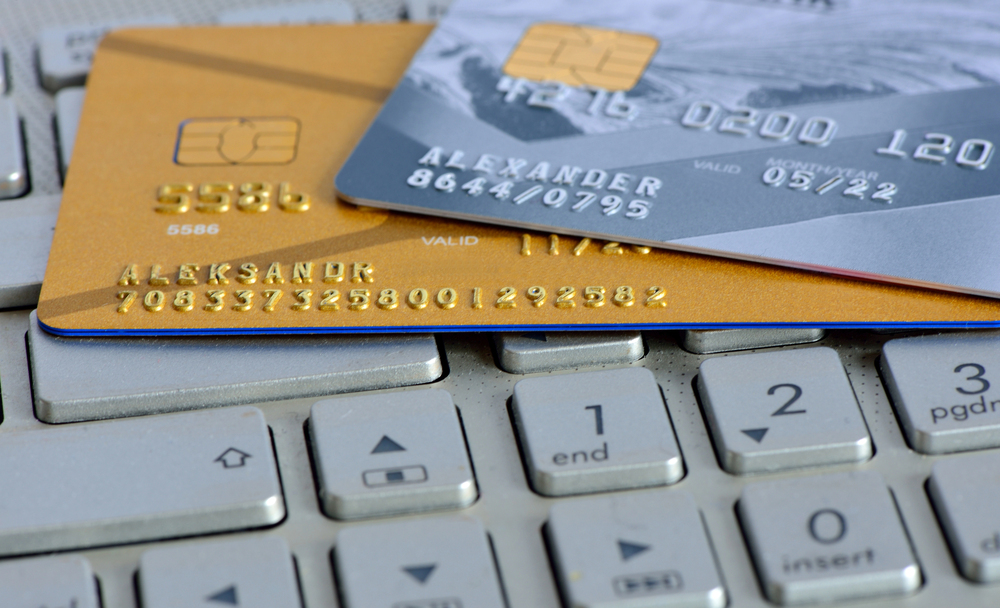
- HIGH RISK MERCHANt
- HIGH RISK MERCHANT ACCOUNT
- MERCHANT ACCOUNTS
- MERCHANT SERVICES
- OFFSHORE MERCHANT ACCOUNT
Offshore High-Risk Merchant Accounts: Everything You Need To Know
Jan 4, 2023 2 minute read
Are you an e-commerce business owner looking for ways to expand your customer outreach and sales? High-risk merchant accounts can be a great way to drive more profits and should be used by most e-commerce businesses.
If you’re having trouble getting (or keeping) a standard merchant account, want a better rate from your merchant services provider, or want to know the benefits of using an offshore account, this is the post for you.
In this post, we’ll take an in-depth look at offshore high-risk merchant accounts and discuss how they can benefit your business overall. You’ll uncover the advantages of diversifying your payment options with offshore payment processing solutions, as well as best practices to keep in mind if you decide to go down that route.
What is the difference between a high-risk merchant account and an offshore merchant account?
There are a few key differences between high-risk merchant accounts and offshore merchant accounts.
Domestic vs Foreign
The first, and most obvious, is that high-risk merchant accounts are based in your home country (i.e., the US) or where your business is incorporated, while offshore merchant accounts can be based anywhere else in the world.
This means that high-risk merchant accounts are subject to US laws and regulations, while offshore merchant accounts are not.
Fees
Another key difference is that high-risk merchant accounts usually come with lower processing fees than high-risk offshore merchant accounts.
High-risk merchants will always be subjected to slightly higher transaction fees—especially when starting out. A high-risk offshore account can incur even higher fees because:
- not only are you high-risk,
- you could also be processing foreign currencies (USD processed abroad)
It’s true that offshore accounts are not subject to the same rules and regulations as domestic accounts, but that doesn’t mean you’ll spend less.
NOTE: Offshore accounts can provide much better credit card processing fees depending on why you need it. For example, if your US-based business has many European customers, it will be cheaper to use a high-risk offshore merchant account to process ONLY those euro payments.
Approval
The final key difference is that high-risk merchant accounts typically require a longer application process than offshore merchant accounts.
This is because domestic banks need to do more due diligence on high-risk merchants in order to assess their risk level. Offshore merchant accounts, on the other hand, are not subject to the same regulations as high-risk merchant accounts. Merchant account application processing is dependent on the requirements of that country; i.e., international banks are more willing to approve you.
What are the benefits of using an offshore high-risk merchant account?
Offshore high-risk merchant accounts offer a variety of benefits for online businesses. Here are just a few:
- Diversification – Diversifying your payment sources is an effective way to reduce the risk of fraud and chargebacks. By using an offshore account, you can diversify and spread out your payments to multiple platforms, reducing the impact of potential fraudulent activities.
- Better Rates – Depending on the country, you may be able to get lower processing fees for payments processed through an offshore high-risk merchant account than you could with a domestic one. This can help your international business save money in the long run.
- Flexibility – Offshore accounts give businesses more flexibility when it comes to payments. You can easily accept international payments and alternative payment methods (e.g., debit cards, ACH, e-check, local methods). This is especially helpful for businesses that have customers from all over the world.
- Privacy – Offshore accounts offer greater privacy than domestic ones, as they are not subject to the same regulations and oversight. This makes it easier for business owners to keep their payment processing activities private.
Who should apply for an offshore high-risk merchant account?
If you are a business that falls into a high-risk category, then you may want to consider applying for an offshore high-risk merchant account. This type of account can offer businesses more protection and security, as well as better rates and fees. There are a number of factors that can make a business high-risk, including but not limited to the following:
- The industry that you are in — high-risk industries include nutraceuticals, casinos, dropshipping, coaching, CBD, adult entertainment, MOTO, and more.
- The amount in sales that you process each month – high volume of sales can appear risky to banks and credit card processors.
- The type of products or services that you offer – low-risk merchant accounts don’t want to process card transactions for certain items like weapons, drugs, and adult content.
- Your credit history – your personal and business credit score play a role in your risk level. It’s often easier to get started as a new e-commerce merchant with offshore merchant account providers when you have zero or bad credit.
- Your chargeback ratio and risk score – domestic accounts won’t approve your merchant account services application if you have a high chargeback ratio.
An offshore high-risk merchant account can be a great option for businesses that have been unable to find a domestic account that will work for them.
These accounts are offered by banks and payment processors located in other countries, and they often have more flexible underwriting criteria than domestic accounts. This can be a great option for the types of businesses that are considered high-risk by domestic banks, or for businesses that have been shut down by their domestic provider.
What are the best practices for using an offshore high-risk merchant account?
When using an offshore high-risk merchant account, there are a few best practices to keep in mind.
Do the Research
First, make sure you do your research and compare different providers to find the one that is right for your business. Just like with domestic options, not every offshore provider will take you on or give you the benefits you need.
That also leads into pre-research: find out what it is, exactly, that you want out of an offshore merchant account. What benefits are you looking for?
Get Good Fraud Protection
Offshore providers typically have a higher risk of fraud due to their ease of approval. That doesn’t mean using one puts your business at risk, it just means you need to make sure the provider has adequate fraud protection and chargeback prevention services available.
You should also always use a PCI-complaint payment gateway with security measures like 3D Secure and other authentication methods. These measures won’t disrupt the checkout experience and can offer more ways to pay (Visa, Mastercard, Amex, bank transfers, etc.).
Read the Terms
Finally, be sure to have a good understanding of the terms and conditions of your agreement, and consult with an attorney if you have any questions. There is always something to find and negotiate within the fine print.
You should also always be able to negotiate your rates. As you gain credit card payment processing history, your offshore service provider should allow you to renegotiate once you’ve been able to prove the security and profitability of your business.
Conclusion: An Offshore High-Risk Merchant Account Could Solve Your Payment Processing Problems
International merchant accounts can be a great solution for businesses that have been denied a merchant account, have had their merchant account canceled by their domestic bank, or process a high monthly volume of sales in a foreign currency.
By working with an offshore banking institution, businesses can get the high risk merchant services they need to continue operating their business.
There are a few things to keep in mind when considering an offshore high-risk merchant account. First, it is important to make sure that the bank you are working with is reputable and has a good track record. It is also important to make sure that you understand the fees associated with the account and that you are comfortable with the terms of the agreement.
If you are looking for a way to continue doing business without drowning in fees or if you simply need a merchant account to start your high-risk business, contact the experts at DirectPayNet. We’ll help you understand the right type of merchant account you need with minimal fees and no risk of being shut down unexpectedly.





Pingback: My Homepage